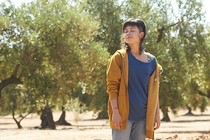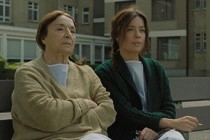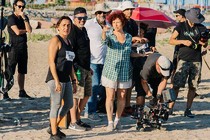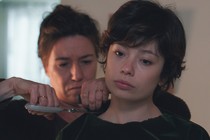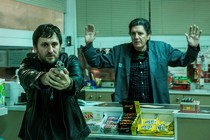The Olive Tree: In search of the lost tree
- The seventh film by Icíar Bollaín has fairy tale and road movie undertones whilst broaching the subjects of roots, struggle, ecology, family ties and the preservation of heritage
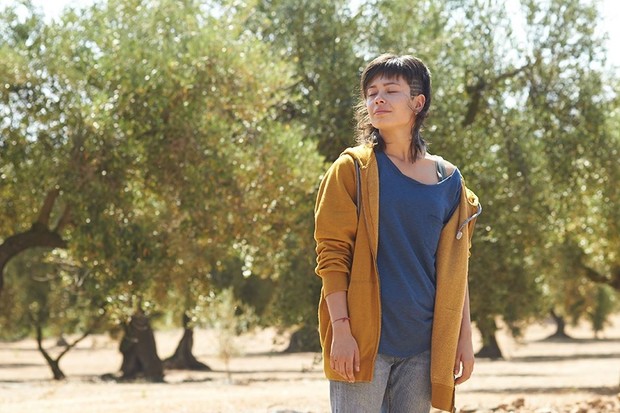
The impressive image of a majestic, centuries-old olive tree, a prisoner in a modern glass office building, sums up the subject matter and ideas in the new film by Icíar Bollaín, an actress and director from Madrid whose main commercial successes to date include Take my Eyes [+see also:
trailer
film profile] (2003) and Even the Rain [+see also:
film review
trailer
interview: Icíar Bollaín
film profile] (2010) perfectly. The former denounces what is unfortunately still a hot topic, gender-based violence, and the latter, the ransacking of natural resources. With The Olive Tree [+see also:
trailer
interview: Icíar Bollaín
film profile], on which she worked with her partner Paul Laverty (Ken Loach’s go-to screenwriter) she has built a simple and traditional fairy tale, idealistic and easy-going, full of environmental claims and defence of locals.
The story is simple: Alma (Anna Castillo) is a young, impulsive, affectionate woman with a strong personality who is very close to her grandfather, and must stand by and worry as the man pines, to the point that he stops talking, because he misses a centuries-old olive tree that his children have sold as an ornament. Determined to restore his cheer by getting the tree back, which has been planted in an unknown location in Europe, the girl, driven by rage, lies and secrets, involves her uncle “Artichoke” (Javier Gutiérrez in a role that Icíar originally envisaged for Antonio de la Torre, who couldn’t take up the role as he was busy filming the debut film by Raúl Arévalo at the time: see article) and her friend and partner Rafa (Pep Ambrós), as well as half the village and a few friends in Germany via social networks. And thus begins a wild-eyed crazy adventure, humble and complex, compassionate and emotional, which leads them across a landscape plagued by corruption, consumerism and the absurdity of a modern world that no longer seems to respect anything, in search of something authentic, like a centuries-old olive tree.
It is most definitely this worldly and very Spanish element of the film that wins over the hearts of viewers of the film all over the world. The family component also strikes a chord, with this open wound and the need for forgiveness, and what about the war between the protagonist and her father: who hasn’t experienced or suffered through that? All these are subtle and slightly jarring elements of a film with a clear commercial vocation, accessible and universal, part of which is shot like a road movie, another like a social commentary, and another like necessary idealism: Bollaín’s intention, as we follow the trio of protagonists down the roads of Europe, is to send a message of delusion, hope, humour and affection to a mainstream audience, reflecting the culture, customs and traditions of deepest Spain on the big screen, which still exists and fights historical and economic factors to keep itself pure, even if this isn’t usually included in the guidebooks.
The Olive Tree was produced by Juan Gordon of Morena Films, in co-production with Match Factory Productions (Germany) and El olivo la película A.I.E. It was made on a budget of €4 million with the collaboration of TVE and Movistar Plus+. The film was supported by Eurimages and the Creative Europe Media programme. Seville Films International is handling international sales, and the first distribution agreements have already been signed with France, Japan, the Benelux countries, Central America, Colombia, Finland, Greece, Israel, Portugal, Turkey and Taiwan. The Olive Tree, is seems, is still travelling.
(Translated from Spanish)
Did you enjoy reading this article? Please subscribe to our newsletter to receive more stories like this directly in your inbox.















